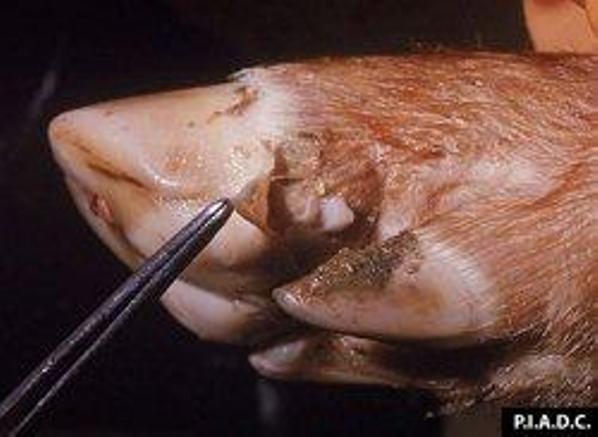Be Ready for FMD
Even though the U.S. pork industry is more prepared than ever to ward off or address Foot and Mouth Disease (FMD), research gaps for FMD and other foreign animal diseases need to be identified and addressed, says Paul Sundberg, DVM, National Pork Board.

“If the pork industry labors under the assumption that it will never get foot-and-mouth disease (FMD), we will not be prepared for it,” says Paul Sundberg, DVM, National Pork Board.
But the fact is, the United States is better prepared today than it has ever been to ward off FMD, he says. “There is training, there is awareness.” The pork industry has been proactive, with close to 100% of farm sites completing premises identification. Work is progressing on individual breeding herd identification, along with new vaccine research and research into disinfecting packing plants.
But research gaps for FMD and other foreign animal diseases need to be identified and addressed, says Sundberg, vice president of Science and Technology. That’s why the Pork Board recently convened a meeting of top U.S. Department of Agriculture (USDA) and Department of Homeland Security officials. Those groups mapped out ongoing research on FMD, African swine fever and classical swine fever to identify research gaps.
“We are working to identify the holes in research and plug those holes,” Sundberg says.
Recently, USDA granted regionalization status to Santa Catarina in Brazil, which means that the region has been confirmed free of foreign animal diseases and can start exporting pork products to the United States in March 2013.
Sundberg assures that USDA has diligently reviewed records, processes and conducted on-site inspections of the six meatpacking plants approved to ship pork to the United States.
“Brazil does have FMD in some parts of the country, but this is a region where there is no FMD,” he says.
Regionalization is a proven animal health concept originated by the Office of International Epizootics. “There is international agreement that regionalization of disease status can work,” Sundberg remarks. It is recognized by several countries around the world and the United States as a means of permitting trade from an infected country that has managed to designate a region as free of a foreign animal disease.
The National Pork Producers Council supports regionalization and recognition of Santa Catarina as free of FMD and other swine diseases. But officials are frustrated that Brazil maintains unjustifiable trichinosis import restrictions on U.S. pork. The incidence of trichinosis in the U.S. pork supply is one in 300 million.
About the Author(s)
You May Also Like





